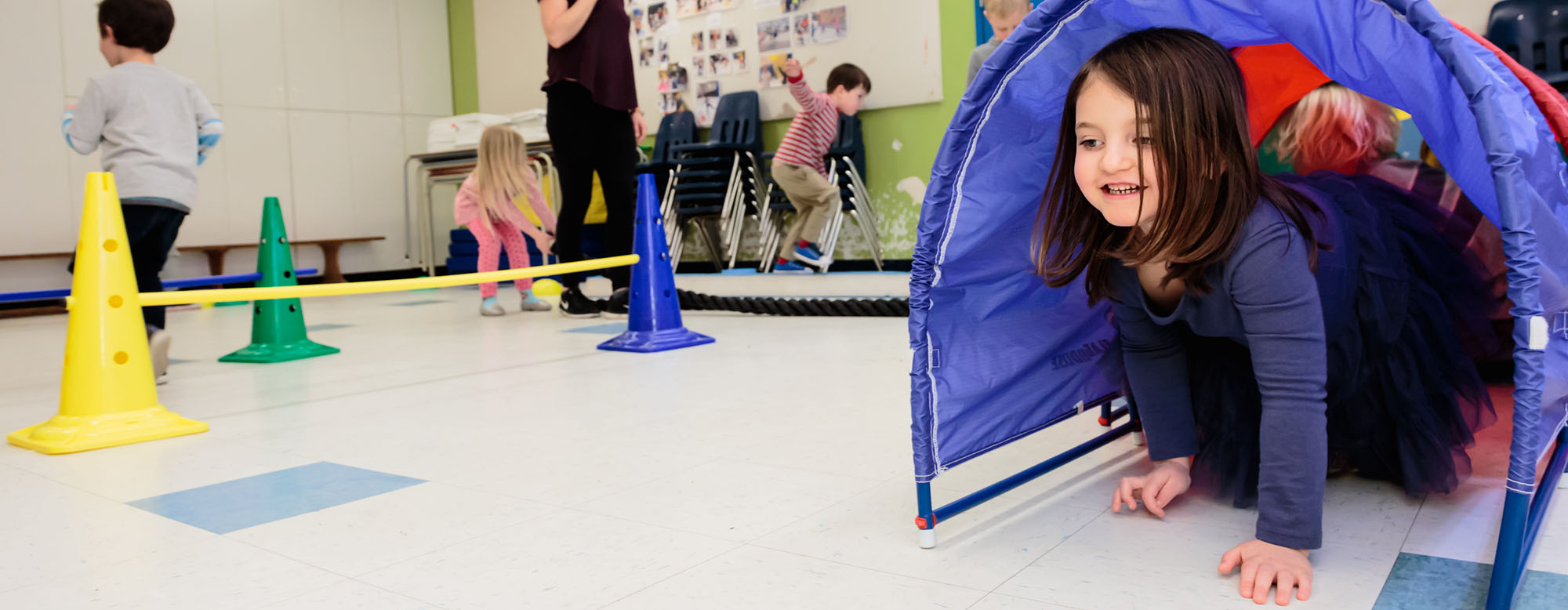Commitment to Anti-Racism
At the Dr. Eric Jackman Institute of Child Study (JICS) Laboratory School, we celebrate our differences and similarities, and we are intentional about creating and supporting a diverse community. To us, learning among individuals who share divergent life stories and appreciating their respective cultures and experiences, is an invaluable aspect of a true education. Nurturing a respectful and inclusive school culture means paying close attention to individual experiences, our curriculum, admission work, our hirings, and our daily lives at the JICS Laboratory School.
The JICS Laboratory School is committed to equity and inclusion, and we acknowledge the importance of pro-actively and re-actively addressing all forms of racism/discrimination in developmentally appropriate ways with the children throughout the year. We know that we often get things wrong. We know we need to hear and deeply listen to the voices of our students, parent community and staff, and make sure our diversity and equity efforts are informed by these voices. We invite you to reach out and inform us about your experiences, thoughts, concerns, suggestions.
Commitment to the Truth & Reconciliation
The JICS Laboratory School is committed to listening and responding actively to the Calls to Action from the Truth and Reconciliation Commission and diverse Indigenous voices across Turtle Island. We are committed to unlearning and relearning the true history of this country alongside Indigenous educators and students. Our work to bring environmental and land-based education into the heart of Canadian educational settings, will always be in the spirit of Truth and Reconciliation.
We invite parents to explore the TRC’s Calls to Action in Child Friendly Language with your child/ren and use the youth-friend guide to the TRC’s Calls to Action by the First Nation Child and Family Caring Society.
September 30
The origins of Orange Shirt Day begin with the experience of six-year-old Phyllis Webstad (Stswecem’c Xgat’tem First Nation), who arrived at her first day of residential school, only to be stripped of her new orange shirt—and with it, her sense of self-worth. Phyllis’s story speaks of the brutal legacy of colonialism that dehumanized Indigenous peoples, and her experience has galvanized communities across Canada to recognize the damage that nearly two centuries of residential schools have done to Indigenous children, their families, and the generations who followed them.
The Norway Maple (at the north west corner of the playground) is tapped each year for sweet water. JICS parent Doug Anderson along with Grade 2 teacher, David Osorio, drill into the tree and attach a tube to collect the sweet water. The students look forward to tasting the sweet water from a tree right on our property (identified by JICS graduate, Isaac). This is part of the JICS mission of providing “land-based education”, viewing our environment through Indigenous ways.
June
We recognize the month of June is designated by the Canadian Government as a month to honour the history, heritage and diversity of Indigenous peoples in Canada. It is also an opportunity to recognize the strength of present-day Indigenous peoples in Canada.
JICS Teacher-Librarian, Krista has written a letter to the community sharing examples of her work honouring Indigenous peoples and knowledge in the Library.
Our hearts are heavy as we mourn the 215 children found at the former Kamloops Indian Residential School. It is impossible to comprehend this tragedy and yet Indigenous people have known this reality and others and they have been ignored. This news is a stark reminder of the violence inflicted by the residential school system and the wounds and trauma carried by communities, families, and survivors into the present. From 1831 until the last Indian residential school closed in 1996...
June 21
In cooperation with Indigenous organizations, the Government of Canada chose June 21 as a day for all Canadians to recognize and celebrate the unique heritages, diverse cultures, and outstanding contributions of First Nations, Inuit and Métis peoples. For generations, many Indigenous peoples and communities have celebrated their culture and heritage on or near this day due to the significance of the summer solstice as the longest day of the year.
The JICS Lab School has had long-standing relationships with many Indigenous communities, collaborating in a reciprocal relationship of learning in the subjects of math, land-based education, and teacher education. We have benefited immensely from the wisdom of our Indigenous friends in Curve Lake First Nation, Aroland First Nation, and Rainy River First Nations and we hope we have been a resource to them as well.
